The first time I strummed a single pickup guitar, I was struck by its raw, unadulterated tone. It was like hearing the essence of rock ‘n’ roll distilled into six strings. As the editor of ‘Acoustic Guitar’ magazine, I’ve explored countless guitar configurations, but single pickup guitars have always fascinated me with their simplicity and tonal character. These instruments strip away the complexities, offering a pure connection between player and sound. But can less really be more? In this article, we’ll dive deep into the world of single pickup guitars, uncovering their unique benefits and characteristics. From the legendary Les Paul Junior to custom-built boutique models, we’ll explore how these minimalist marvels have shaped music across genres. Whether you’re a seasoned pro or a curious beginner, prepare to discover why sometimes, one pickup is all you need to make musical magic.
Understanding Single Pickup Guitars
Single Coil vs. Humbucker Pickups

As a guitarist and transcriber, I’ve developed a keen ear for the nuances between single coil and humbucker pickups. Single coil pickups typically offer a brighter, more articulate tone with a characteristic “twang.” They’re excellent for cutting through a mix but can be prone to unwanted noise. On the other hand, humbucker pickups provide a fuller, warmer sound with higher output and less noise. They excel in high-gain situations but may lack some of the single coil’s sparkle.
In the context of single pickup guitars, the choice between these two becomes even more crucial. A single coil pickup will give you that classic, crisp tone perfect for country or surf rock, while a humbucker pickup might be your go-to for heavier genres or smoother jazz tones. Understanding these differences is key to selecting the right single pickup guitar for your musical needs.
Pickup Placement and Its Impact

In my experience writing instructional books like “Color Your Chords,” I’ve discovered that pickup placement is crucial in shaping a guitar’s voice. Where the pickup sits along the strings dramatically alters the tonal spectrum. Positioning closer to the bridge emphasizes treble frequencies, perfect for cutting leads and twangy country licks. Conversely, moving towards the neck brings out warmer, rounder bass tones, ideal for jazz and blues. With single pickup guitars, this placement becomes even more critical. It’s a delicate balance – finding that sweet spot that offers versatility without compromising the instrument’s unique character. I’ve found that many players overlook this aspect, but understanding pickup placement impact can be the key to unlocking your ideal sound. It’s not just about the pickup itself, but where it interacts with the strings, making each single pickup guitar a unique tonal exploration.
Advantages of Single Pickup Guitars
Simplified Wiring and Maintenance
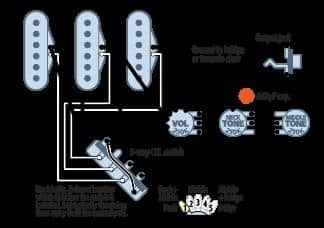
As someone who’s written extensively about guitar maintenance, I can attest to the beauty of simplicity in single pickup designs. The guitar wiring simplicity offered by these instruments is a game-changer for both novice and experienced players. With fewer components, there’s less that can go wrong, making troubleshooting a breeze. I’ve found that this streamlined approach not only reduces the likelihood of electrical issues but also simplifies routine maintenance tasks.
Over the years, I’ve worked on countless guitars, and I’ve come to appreciate how single pickup configurations minimize the need for complex wiring diagrams. This simplicity translates to quicker setups and repairs, allowing players to spend more time making music and less time fiddling with electronics. For those who enjoy DIY projects, the straightforward wiring makes modifications and upgrades far less daunting, opening up a world of tonal possibilities without the need for advanced technical skills.
Tonal Purity and Sustain
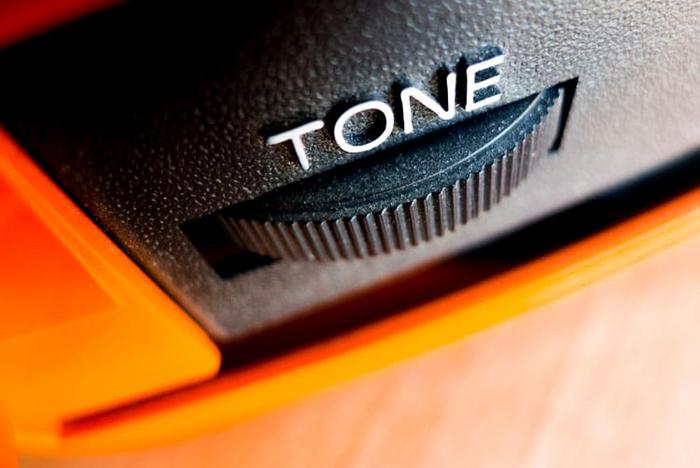
As I delved into Jim Hall’s signature licks, I discovered the true essence of tonal purity. Single pickup guitars excel in this aspect, offering a direct signal path from string to amplifier. This simplicity results in a cleaner, more focused tone with enhanced sustain. The absence of multiple pickups eliminates phase issues and reduces magnetic pull on the strings, allowing them to vibrate more freely.
In my experience, this enhanced sustain and clarity is crucial for certain styles, particularly in jazz and blues. The purity of tone allows for greater expression and nuance in playing, making every note count. It’s like having a blank canvas where each brushstroke of sound is more vivid and intentional. This tonal purity also translates beautifully when recording, requiring less processing to achieve a rich, authentic guitar sound.
Minimalist Design Appeal
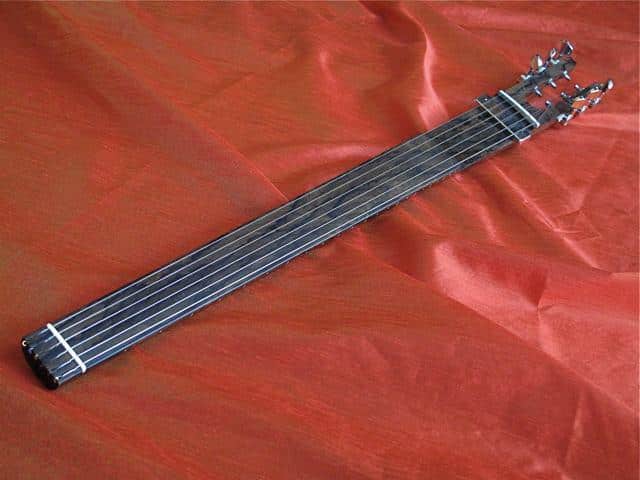
As a guitar journalist, I’ve encountered countless players who swear by the minimalist guitar design of single pickup instruments. There’s something inherently appealing about their stripped-down aesthetic. One virtuoso I interviewed for Premier Guitar described it as “pure guitar essence.” I couldn’t agree more. The clean lines and uncluttered body exude a sense of purpose, focusing attention on the instrument’s core function. This visual simplicity often translates to a more intuitive playing experience, allowing guitarists to connect more deeply with their instrument.
Moreover, the minimalist approach extends beyond mere looks. It embodies a philosophy of “less is more” that many find liberating. By eliminating extraneous components, these guitars encourage players to explore the full potential of a single pickup, often leading to greater tonal creativity. This design ethos resonates strongly with those seeking to pare down their rig and focus on the essentials of their craft.
Popular Single Pickup Guitar Models
Les Paul Junior
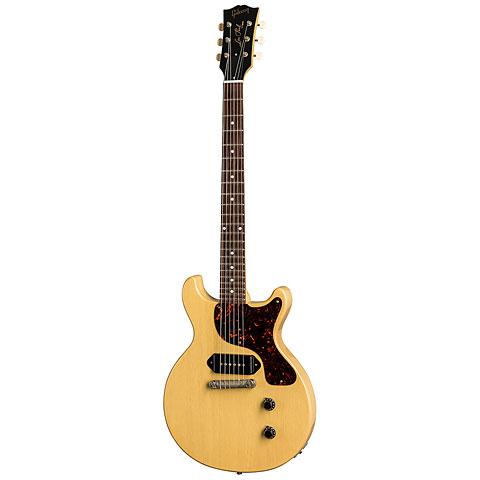
As we explore popular single pickup guitar models, the Les Paul Junior stands out as a true icon. I’ve had the pleasure of playing numerous Les Paul variants, but the Junior holds a special place in my heart. Its simplicity is its strength. With its single P-90 pickup, the Junior delivers a raw, powerful tone that’s become a favorite among rock and blues players. I’ve found that its stripped-down design not only contributes to its distinctive sound but also makes it incredibly responsive to playing dynamics. The Junior’s lightweight slab body and simple controls allow for an immediacy of expression that’s hard to match. From my experience, this guitar excels in cutting through a mix, making it a go-to choice for rhythm work and lead playing alike. Its enduring popularity is a testament to the effectiveness of its minimalist approach.
Telecaster Single Pickup Variants
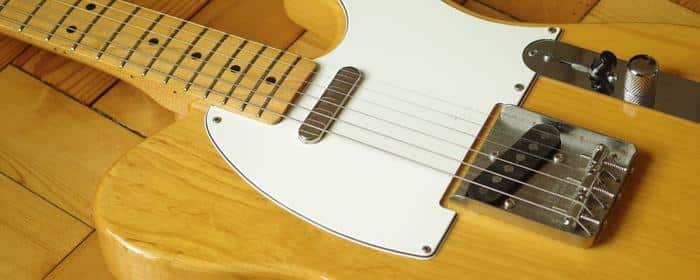
As a guitarist who has spent countless hours transcribing classic Telecaster riffs, I’ve developed a deep appreciation for single pickup Tele variants. These streamlined instruments offer a unique playing experience that sets them apart from their dual-pickup cousins. The Esquire, Fender’s original single pickup model, paved the way for this minimalist design. In my experience, the Telecaster single pickup configuration delivers a raw, unbridled tone that’s perfect for cutting through a mix. The absence of a neck pickup allows for a fuller body resonance, resulting in enhanced sustain and a punchier attack. I’ve found that these guitars excel in genres ranging from country twang to aggressive rock, offering a versatility that belies their simple appearance. The focused tone and straightforward controls make single pickup Teles an ideal choice for players seeking an uncluttered, no-nonsense instrument.
Single Pickup Guitars in Different Genres
Rock and Blues Applications
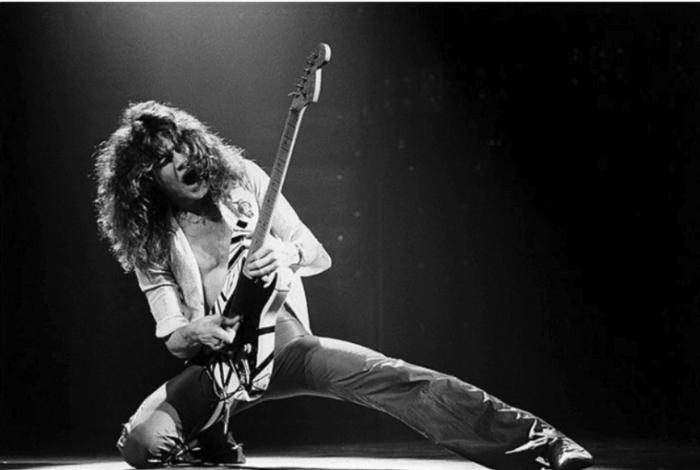
In my years of transcribing rock and blues classics, I’ve discovered that single pickup guitars have played a pivotal role in shaping these genres. Where raw power and simplicity reign supreme, these instruments truly shine. I’ve found that legendary players like Leslie West of Mountain and Johnny Ramone of The Ramones relied heavily on single pickup rock guitars to craft their iconic sounds. The stripped-down nature of these instruments forces players to focus on technique and expression, rather than relying on complex electronics. In the blues realm, I’ve noticed how artists like Junior Kimbrough used single pickup guitars to achieve a pure, unadulterated tone that cuts through any mix. These guitars excel in live settings, where their robust sound and no-nonsense approach make them ideal for high-energy performances. Their simplicity also lends itself well to aggressive playing styles and heavy distortion, making them a staple in punk and hard rock scenes.
Jazz and Clean Tones

As a jazz improvisation enthusiast, I’ve found that single pickup guitars can shine in jazz settings. The key lies in leveraging the pickup’s unique characteristics. When placed in the neck position, a single pickup jazz guitar offers warm, mellow tones perfect for chord melodies and smooth solos. I’ve discovered that rolling off the tone control slightly enhances this effect, creating a buttery sound that’s quintessentially jazz. For cleaner tones, I often adjust my playing technique, using a lighter touch and focusing on the guitar’s middle to neck areas. This approach, combined with the right amp settings, produces crystalline clean tones that cut through a mix without being harsh. The simplicity of a single pickup setup also encourages a more nuanced playing style, where subtle variations in pick attack and hand positioning become crucial in shaping the sound.
Customizing and Modifying Single Pickup Guitars
Upgrading Pickups
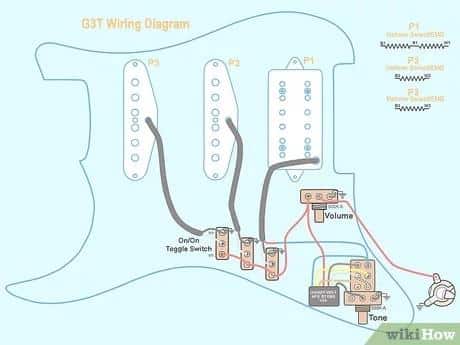
Through my work with Premier Guitar, I’ve gained extensive knowledge about pickup upgrades. When it comes to enhancing your single pickup guitar’s sound, there are several options to consider. Upgrading your pickup can significantly alter your instrument’s voice. I often recommend exploring different pickup impedance levels to find the perfect match for your playing style. Low impedance pickups offer clarity and definition, while high impedance ones provide a warmer, fuller tone. It’s crucial to consider your guitar’s body wood and your preferred amplification when selecting a replacement pickup. I’ve found that experimenting with various materials, such as Alnico or ceramic magnets, can yield surprising results. Remember, the goal is to complement your guitar’s inherent characteristics while pushing its sonic boundaries.
Adding Controls and Switches
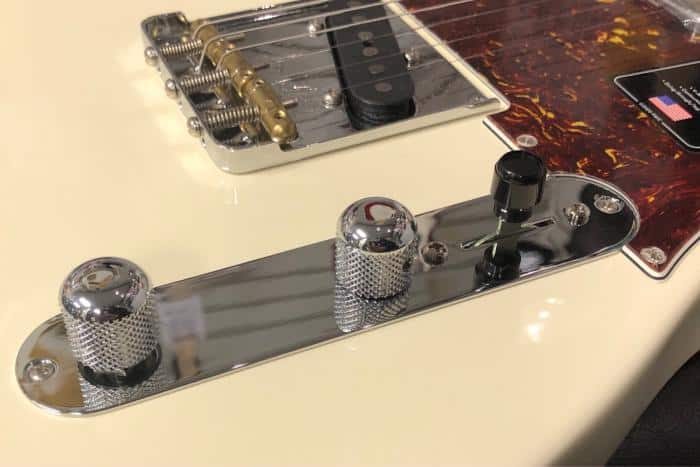
As a guitar engraver, I’ve delved deep into the world of guitar electronics, and I can confidently say that adding controls and switches to a single pickup guitar can significantly expand your guitar tone options. Even with just one pickup, there’s a wealth of tonal possibilities waiting to be unlocked. I’ve found that installing a simple tone control can add warmth or brightness to your sound, while a push-pull pot can introduce coil-splitting for single-coil tones from a humbucker. For those seeking more versatility, I recommend adding a phase switch, which can create unique out-of-phase sounds. These modifications don’t compromise the single pickup ethos; instead, they enhance it by providing more expressive options. Remember, the key is to balance simplicity with functionality, ensuring that each addition serves a purpose in your tonal journey.
FAQs
What is a single pickup guitar?
What are the benefits of a single pickup guitar?
- Simplified tone controls
- Increased sustain due to less magnetic pull on the strings
- Clearer, more focused tone
- Lighter weight
- Reduced electromagnetic interference
- Lower production costs, often resulting in more affordable instruments
What types of music are single pickup guitars best suited for?
- Rock and punk
- Blues
- Country
- Genres that emphasize raw, aggressive tones
They’re popular among players who prefer a straightforward, no-frills approach to their sound.
Are there any limitations to single pickup guitars?
- Less tonal variety compared to multi-pickup guitars
- Inability to achieve certain classic guitar tones that require multiple pickups
- May not be suitable for genres that require a wide range of sounds from a single instrument
However, many players view these limitations as part of the instrument’s charm and work within them creatively.
What are some famous examples of single pickup guitars?
- Gibson Les Paul Junior
- Fender Esquire (predecessor to the Telecaster)
- Epiphone Les Paul Junior
- Danelectro U1
- Many custom-built or boutique guitars
These guitars have been used by numerous renowned musicians across various genres.
Conclusion
After exploring the world of single pickup guitars, one question remains: Could less really be more in your quest for the perfect tone? As someone who’s dedicated their career to understanding and explaining the intricacies of guitars, I’ve developed a deep appreciation for single pickup models. The benefits of single pickup guitars are clear: simplified wiring, enhanced tonal purity, and a minimalist aesthetic that many players find irresistible.
From the raw power of a Les Paul Junior to the twang of a single-pickup Telecaster, these instruments offer a unique voice across various genres. Their simplified design not only makes maintenance easier but also encourages players to focus on their technique and expression. Whether you’re a blues purist or a jazz enthusiast seeking clean tones, single pickup guitars can deliver. As you consider your next instrument, remember that sometimes, stripping things down to the essentials can lead to the most authentic and inspiring musical experiences.